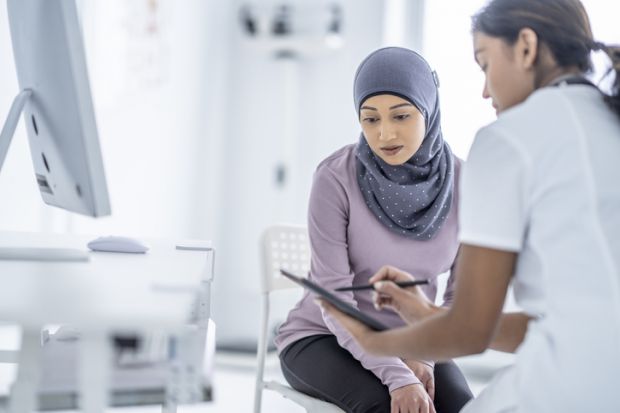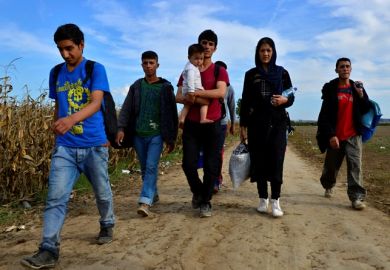Universities could improve health outcomes across the Arab world by collecting data from the region, a conference was told.
Speaking at the Times Higher Education Arab Universities Summit, academics described how many pharmaceutical studies are based on Western participants, who often have different lifestyles and cultural backgrounds compared with those in the Arab region.
But this leads to potential gaps in the data, leaving some populations with less reliable data, said Ghassan Saed, professor of gynaecology at Wayne State University School of Medicine.
“The data is there, but not for you,” Professor Saed told the event, held at the University of Dubai.
Using the commonly cited medical statistic that cholesterol levels above 200 milligrams per decilitre of blood was typically considered high, he asked: “Who are the candidates for those statistics? The healthy adults that lived in the country that produced those statistics.
“You have a completely different lifestyle,” he told attendees. “If you want to adapt ideas, do research that benefits your own community…Their criteria are different. Their lifestyle is different.”
This needn’t be a daunting task for universities, Professor Saed continued – in fact, it should prove an easy area of research for academics. He urged academics to “copy” studies where there are data gaps for Arab populations and recreate the data.
“We can create the same data. It’s simple, just go and copy it,” Professor Saed said.
“You don’t have to be innovative, just get the idea. Do your own work, and a university can come and do a research centre and recruit patients and measure.”
Speaking at the same event, Nathir Obeidat, president of the University of Jordan, said that the Covid-19 pandemic saw universities thrust to the forefront of national politics, highlighting the potential of academia to shape “national conversations”.
“I think at that time it was an important experience for people, not only in Jordan but in many countries, that they gave university professors the role to give advice [and] to lead.”
Register to continue
Why register?
- Registration is free and only takes a moment
- Once registered, you can read 3 articles a month
- Sign up for our newsletter
Subscribe
Or subscribe for unlimited access to:
- Unlimited access to news, views, insights & reviews
- Digital editions
- Digital access to THE’s university and college rankings analysis
Already registered or a current subscriber?










